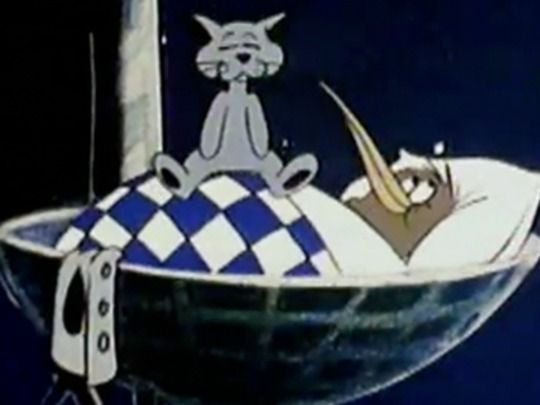
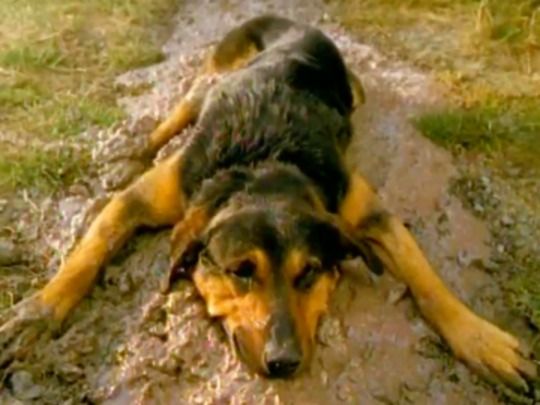
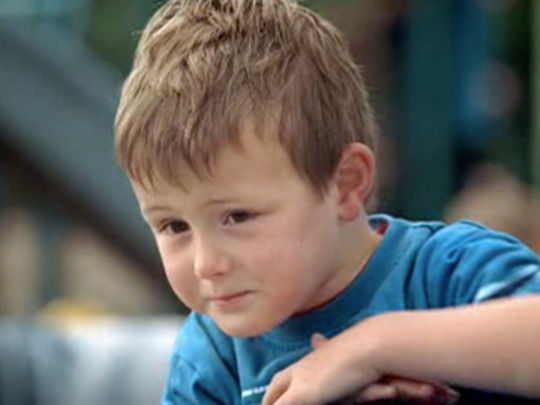
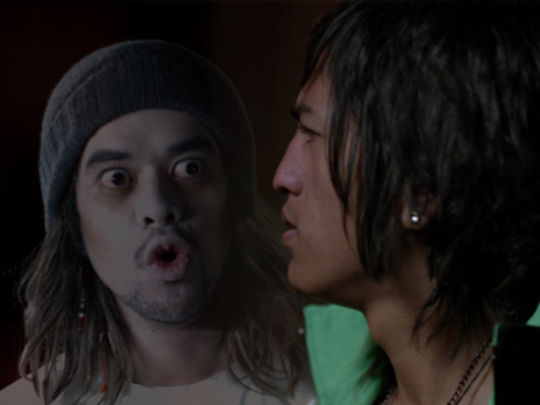
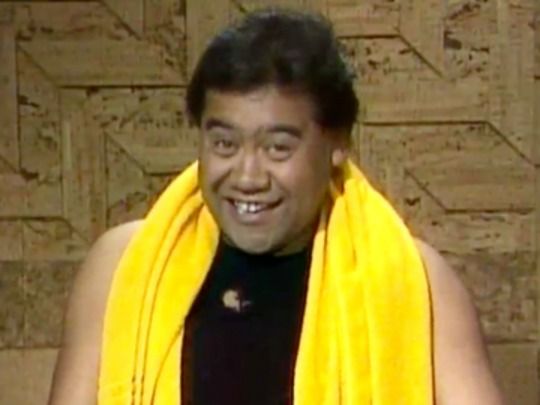
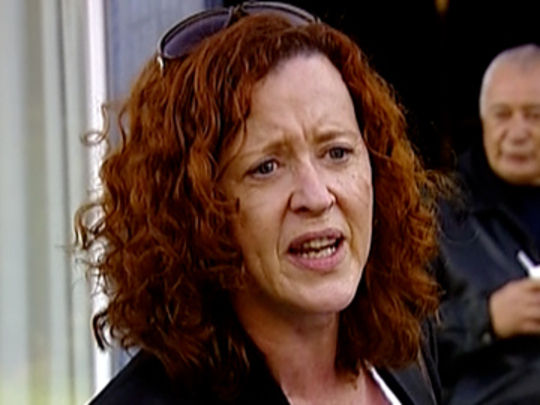
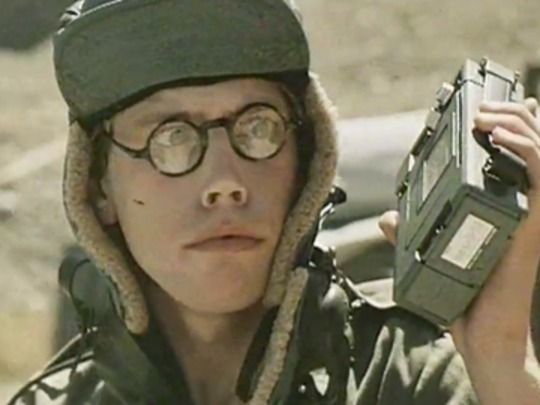
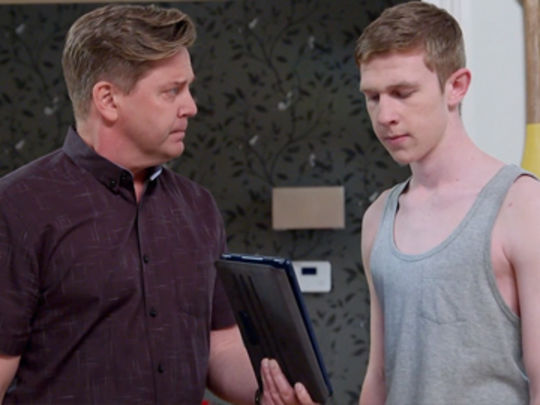
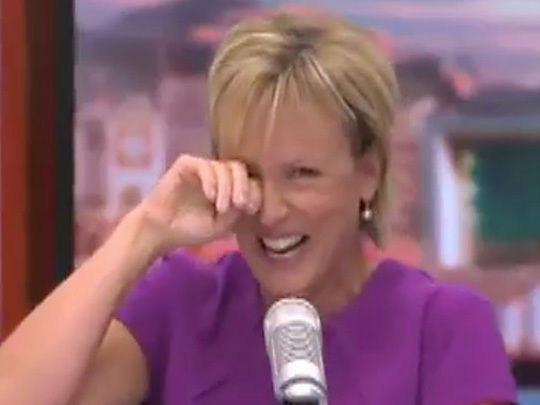
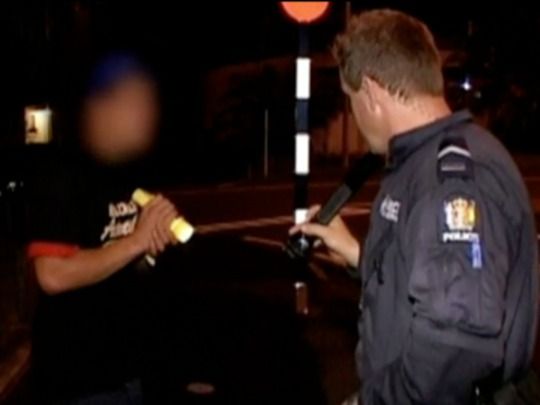
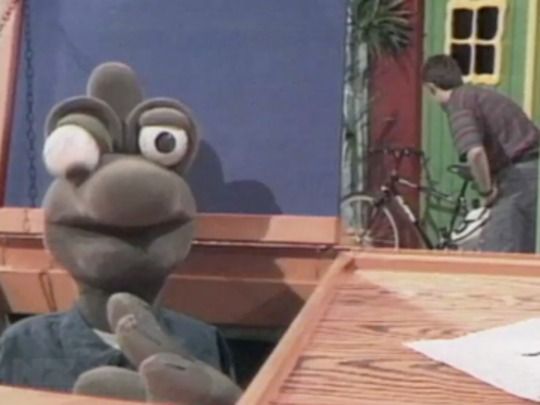
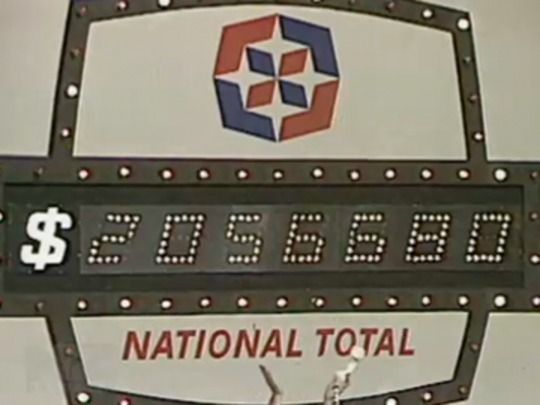
60 TV Moments: 1960 - 2020
60 TV Moments: 1960 - 2020
This collection has three backgrounds:
Memories of 11 Unforgettable Moments

60 Years: A Love Letter to Television

The Full List of 60 TV Moments
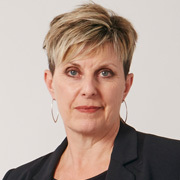
Memories of 11 Unforgettable Moments

By some of those involved 29 May 2020
Hilary Barry on an emergency defecation situation [see the third clip of Bloopers - News]
Plenty of broadcasters get the giggles on-air, and it’s easy enough to brush off when the cause of hilarity is something benign. Unfortunately, in this case, the story was serious. The initial trigger had been the strange phrasing from a reporter who, in describing the bowel movement of an alleged sexual offender at the scene of the attack, called it an "emergency defecation situation". The fact it was so inappropriate to giggle at the end of a serious story made it even harder to control the laughing. Even more inappropriate was laughing through the story which followed, about a suicide bomber on a plane in Somalia. As hard as it is to tell yourself sternly that you "HAVE" to stop giggling, you reach a point where you just can’t. It’s not my proudest moment but I didn’t lose my job that day and, apart from a small handful of outraged viewers, most people forgave me.
David Fane on beloved bro'Town catchphrase "Not Even Ow” [see one minute into this bro'Town episode]
Contrary to popular belief, I did not make this phrase up. It was a popular saying amongst the kids of 1970s Ponsonby, when Ponsonby was cool, not cold. I first heard it said by a classmate at Ponsonby Primary. He was the cool kid (but also the slightly unhinged kid). When being dressed down by the Principal for allegedly throwing a brick at a girl he liked, and asked by the Principal "did you do it?", he simply in a cool way looked up — like way up, because the Principal was six foot two — and uttered the words "Not Even Ow". From that time on, the cries of "Not Even Ow" could be heard all around the peaceful, violent, laugh-filled streets of Ponsonby.
Michael Galvin on Shortland Street's "not your penis" moment
I was a little nervous when we came to shoot this scene, only because "please tell me that’s not your penis!" was such a great line and I didn’t want to blow it (so to speak). But with a little help from the director I managed to give it the correct amount of crazy, and it got a few chuckles from the crew so I felt I’d managed not to ruin it. Then I forgot all about it...until two months later when it went to air, and every radio station was talking about it. I ended up doing at least a dozen radio interviews. There were complaints from sensitive viewers, of course, but none were upheld because the line contained no actual offensive language. Then just when I thought the fuss had died down, I got a text from our publicist at 6:30am that read "Alec Baldwin playing Chris Warner". I just assumed he’d had a big night out and hadn’t gone to bed yet, until he sent me the link for Jimmy Kimmel and Alec Baldwin performing the scene on Jimmy Kimmel Live! It was a very unsettling collision of universes, watching a Hollywood movie star playing Chris Warner (my daughter, God bless her, said "you did it better, Dad"). And, of course, I then had to do another dozen follow-up radio interviews. Poor Reid Walker, who plays Harry, was attending an all-boys school at the time, so no prizes for guessing what was yelled at him by some of his schoolmates every day for a month. Needless to say, the scene went viral: last time I looked, a YouTube version of it had clocked up just over two million views.
Kim Hill on her Face to Face interview with writer John Pilger
I would point out that I didn't in fact throw a book at John Pilger, but slid it energetically across the table. On Face to Face, we had a policy of running the interviews as live, even if they were pre-recorded, as this one was. We agonised about it but decided to be true to the policy and leave it as was, and retired to our cameraman's hotel room to watch it go out on-air. I shut myself in the bathroom with the tap running so that I couldn't hear it, and I've never seen it. Mind you, I never watched any of them.......I have a face for radio!
Irene Gardiner on Rastus the Cat
When I produced Newsnight back in 1994, we were a small team putting together a half-hour programme every weeknight, so it was all hands on deck, and I used to find a lot of the stories myself. We covered such a wide range of topics, and I was always looking for stories that had that little extra something about them. They were pre-internet days, so a lot of my weekend time was spent reading the Sunday papers and women's magazines, and ripping out stories that looked like they were ripe for a TV version. Anything with a bit of quirky charm was a sitter for us. So when I was flicking through a magazine and spotted an endearing image of a handsome black cat riding on the handlebars of his owner's motorbike, wearing a natty red handkerchief and a tiny black helmet and goggles, I was sold. Newsnight reporter Ingrid Leary tracked Rastus' master Max Corkill down. The shots of Rastus on the bike with his nose out into the wind still make me smile. Our story increased Rastus' fame, and he and Max later featured in a commercial. They always donated the money to the SPCA. The Max and Rastus story came to a sad end in 1998, when both were killed by a drunk driver. I had never even met them, but shed a few quiet tears for them and the joy they had inspired. It's lovely that their little piece from Newsnight gets to have another life on NZ On Screen, and keeps their memory alive.
Mikey Havoc on Havoc and Newsboy calling Gore the gay capital of New Zealand
When you arrive in the country music capital of New Zealand and park in the centre of town by the enormous statue of a leaping brown trout, it's easy to be lost for words. If you happen to be still suffering from a rather boisterous post-Miss NZ Contest night out in Dunedin as well, then identifying which fun facts or fascinating tales about Gore to put in your TV show is challenging. So … you explore your options. In our case, one of the options was to make something up. So we did: we said Gore was the gay capital of New Zealand. Ha ha, great idea. What could go wrong? So began an unintended but very timely social experiment, and a gag that just keeps on giving. We honestly never even thought it would end up in the show, but I'm glad it did. Homophobia has always baffled me and there is no place for it in the world. Although it has caused some prickly moments on occasion since, it's still very funny and I'm awfully proud that it made NZ On Screen's top 60.
Russell Smith on playing milk-drinking vampire Count Homogenized
The Count offered me an amazing possibility to be as bizarre as possible within the realms of television. At that time, children's television was all about being nice and kind and safe, but this character was completely off the wall and the kids just loved it. But funnily enough, adults either loved him or hated him — I'd have people stop me in the street and say "hey, you're the guy that does that stupid Count on TV" or they'd say "we love the Count!" — it was never in-between. I had a lot of fun with him. The only downside was I wasn't a great fan of milk. I remember a Telethon one year where every pledge was "I'll give $20 if the Count drinks a bottle of milk". That was pretty hard! Even on-set, a lot of the milk bottles were painted white to make it seem like I was drinking milk. But he was a great character to play. I think we just happened to strike the right note at the right time with A Haunting We Will Go and It is I, Count Homogenized.
Rod Vaughan on being punched by recently retired politician Bob Jones
For better or worse, being punched on the nose by Bob Jones was a defining moment in my 40 year career as a television journalist. It happened almost 36 years ago, but even today complete strangers come up to me wanting to know whether I was the guy laid out by Jones, when trying to interview him on the banks of the Tongariro River. I'd be a very wealthy man if I'd been paid a dollar every time the question has been put to me, but I've long since been resigned to the fact that it's a cross I'll have to bear for the rest of my life. That said, it's been fascinating to observe how public attitudes to this infamous episode appear to have changed over the decades. When it happened back in 1985 I was reviled for allegedly harassing Jones, even by some in the media. Typical of the flak was a telegram from John Ferguson in Dunedin: "Serve you bloody well right." Amongst all the invective was just one message of support, from Nelly Mardle in Taradale: "Good luck. No man should use power or money to manipulate government." Today many folk who ask me to recount the events leading up to the left hook that broke my nose are genuinely shocked at the ferocity of the assault, and the ensuing public outpouring of vitriol aimed at me. Of course Jones paid a price for his pugilism, later being convicted in the Taupo District Court on four charges of assault, and fined $1000 on each. Always quick with a riposte, Jones then asked the judge if he were to pay twice as much could he deal to me again.
Murray Grindlay on creating the music for the Dear John advert
My first memory of the Dear John ad occurred in a stairwell in the Colenso building, circa 1981. The creatives felt we needed some inspiration (make of that what you will). So, there I was, sitting on a step with my guitar, going through the chords of an existing song that they wanted to use, entitled 'A Dear John Letter'. The song had been written in 1953 and was a crossover country/pop hit for Ferlin Husky and Jean Shepard. Their arrangement had Jean singing the only verse in the song two or three times in succession, with Ferlin speaking his part (the contents of the letter) in his trademark sonorous tones between the verses. This wasn’t going to work for us. Firstly, we only had 60 seconds. Secondly, our hero in the ad receives a BASF cassette tape (not a letter) with his sweetheart singing her deadly message. We also had to modernise it. So I slowed the tempo down a bit, trying for more of a torch song feeling, and changed a few lyrics as in "you’ll like him John, he’s your brother, so adieu to you forever dear John". The brother did appear in the original, but only in Ferlin’s speaking part. Next stop — Stebbing Recording Studios. I had a great little band featuring Red McKelvie on pedal steel, but the icing on the cake was the fabulous singer Jacqui Fitzgerald. She totally owned it and got that torch thing I was looking for. Much to my delight, the ad became world-famous and won several awards. P. S. never underestimate a stairwell: the reverb's great.
Brian Edwards on ending a Post Office go-slow live on-air [excerpt from Edwards' 1971 book The Public Eye]
I’m not quite sure just how [Gallery producer] Des [Monaghan] pulled it off, but the appearance of Messrs [Ivan] Reddish and [Allan] McCready in the Gallery studio, face to face for the first time since the dispute began, reminded me a little of the old motto: "Difficult jobs done at once; the impossible may take a little longer." During the course of the afternoon, in preparation for this improbable confrontation, I had come to two conclusions — that the continuation of the go-slow related less to the actual issues than to the complete breakdown of communication between the parties involved, and that the chicken and the egg phenomenon, with government refusing to talk until the Post Office Association called off the go-slow and the Post Office Association refusing to call off the go-slow until government agreed to talk, was, at this level of industrial relations, nothing less than infantile. By the early afternoon I had reached a third conclusion — that against this background, and assuming that we could get Reddish and McCready together and talking to one another, it was just within the realms of possibility that we might resolve a dispute on-air.
Max Cryer on having Ray Columbus on his knee for A Girl To Watch Music By
Ray Columbus was one of New Zealand’s most successful singing stars. He was not entrenched in either pop or rock but moved easily through both, and had a vibrant personality which easily came through on a TV screen. But it wasn’t generally known that Ray had started his entertainment apprenticeship as a dancer. In 1969, producer John Barningham put together a series called A Girl To Watch Music By. Each week featured a popular New Zealand female singer, with Ray Columbus as host. For the episode starring Pat McMinn, I was the guest artist.
For my solo, someone suggested a number from the show The Roar of The Greasepaint — The Smell of The Crowd sung by the character Sir. Choreographer Cherry Raymond said "There’s also a comic number in that show where Sir tries to put down the cheeky character called Cocky. Perhaps Ray and Max could consider that?" Director John Barningham said "Let’s not hurry. There could be a camera angle difficulty — Max is SO tall, and Ray … isn’t." Ray and Cherry had been muttering in a corner, and they said to Barningham "what if Ray sat on Max’s knee — like a ventriloquist dummy?" Although Barningham looked a bit doubtful, it was Ray who said "great idea — let’s do it". And we did. We recorded the vocals with the NZBC Symphony Orchestra, and Cherry rehearsed the actions with us. Ray was a much better dancer than I am, but the item was well-received. By some miracle that particular piece of TV tape wasn't wiped and used for something else. Our ventriloquist duet remains.
60 Years: A Love Letter to Television
By Andrew Shaw 29 May 2020
When I was asked to write this, I was aware that in the minds of many readers, both television and I have become old. TV is now 60, and I am 63. I have been working before or behind the cameras, in one role or another, for 45 of the 60 years we've had television in New Zealand.
When I walked in the door of the NZ Broadcasting Corporation's Shortland Street studios at the tender age of 18, to work on the soon to launch Television Two, we'd only had a broadcast system for 15 years — and network television for only five. Colour television had only been a reality since the 1974 Commonwealth Games. Editing was virtually impossible unless done physically on film. The technology was basic, and the rule book said make it up as you go along. But like many creative adventures, it was and continues to be populated by wonderful individuals from across the art forms.
What began as four unconnected, government-owned regional TV stations in 1960 has now transformed into part of an industry that would be unrecognisable to those pioneers. Today media fires into and out of the lives of Kiwis via a myriad of new platforms and services. Free, pay, AVOD [ad-based video on demand], OTT [over-the-top media service] and social media services multiply almost monthly. Global entities with more money than small countries dominate the content landscape. Yet New Zealand content still resonates with Kiwis, which is something to be proud of.
I began viewing many of the videos in this collection and quickly realised I was travelling down memory lane, past the faces of many close friends and some legendary broadcasters and moments in our history. I was also reliving my own time in television. I was fortunate to be there on-set and on-screen at the launch of TV2; lucky to have been part of the unreal experiences of the Telethons between 1975 and 1981; privileged to have been around to observe the birth of TV3, and the launch of NZ On Air and the independent production industry. Big milestones in the development of this industry, beaming into the living rooms of every home in the country. I was reminded what a privilege it is, to be in or near some of these moments, and the amazing people that created them.
Over these six decades television has been there when it happened, to report on it, debate it, and challenge those in power. Television then and now reflects our image.
Scattered throughout this collection are examples of world-class journalism. Even today the confrontations between Prime Minister Robert Muldoon and Simon Walker, Muldoon versus Lange, and Muldoon calling the snap election are gripping. The Paul Holmes/Dennis Conner confrontation made history, and made the Holmes show an unmissable daily event. These moments remind me of the critical role of independent news journalism in our democracy. Kim Hill interviewing the very arrogant John Pilger still brings me to rage. Thankfully we still have Kim on Radio New Zealand; Pilger I can live without.
Then there is the wonderful entertainment. Time is never kind to any of us and it has an especially cruel effect on drama, comedy and entertainment programming (an area I spent a great deal of my career working in). Nevertheless, you can find in this collection many of our greatest entertainers and communicators learning their craft. New Zealand can claim credit or blame for the birth of competitive reality shows with Popstars in 1999. Some of what you will experience might make you cringe; but much was genuine, warm-hearted and fulfilling. Whether it be John Clarke (aka Fred Dagg), Billy T James, McPhail and Gadsby, Jason Gunn and Thingee, Peter Sinclair and the disastrous ending of Miss New Zealand 1984, Havoc and Newsboy and the entire cast of A Week of It, to select just a few.
From the funny moments on Wheel of Fortune and It's Academic, to the most famous comedy misstep, Melody Rules, there is much to remind us of what we've achieved, through both success and failure. Even duping the audience isn’t new. Look at the turkeys in gumboots report for early regional news show Town and Around, the Country Calendar spoofs and of course Costa Botes' and Peter Jackson's Forgotten Silver.
Without the brave early attempts, we would not have the highly sophisticated content produced today. Pioneering dramas like Close to Home made Shortland Street possible. Gloss made Outrageous Fortune, Go Girls, The Brokenwood Mysteries and One Lane Bridge possible. Each adventure, regardless of its own faults, leads to the next step forward. For that we should be very grateful. Let’s be honest with ourselves though — you must make some pretty big mistakes in order to learn. Compile your own list; I have mine.
When I viewed the launch video for TV3 (why does 1989 seem like only yesterday?) I was reminded of the optimism that runs throughout this industry: bravery and foolishness sometimes, in the face of obviously huge challenges. They've never stopped the television industry before and shouldn’t stop us now. Given the current challenges facing television, we need that creativity and bravery more than ever.
Personally, the Telethon clip from 1981 reminds me of how powerful the medium of television can be. A nation entertaining (and deliberately embarrassing) itself to raise money, live for 24 hours. It brought New Zealand to a standstill, bringing us together for one shared goal. If I had to pick one experience, it would be working on those events. There is no safe drug so powerful as putting out 24 hours of nationwide entertainment.
Like any library, you must look for what interests you in this collection. For heartbreaking/warming moments, find Paul Holmes and Eve van Grafhorst. For politics, Muldoon versus anybody. For tragedy, the Wahine disaster. For brilliant commercials that have stood the test of time, check out Hugo and Holly (KFC) and Dear John (BASF). And don’t overlook the Bugger ads for Toyota, and Crumpy and Scotty, who made their Toyota series a must-see event on the screen.
This piece has, by accident, turned into my love letter to television: a thank you to this industry, for being able to spend time in the company of creative geniuses, moments of magic and historical events, and the occasional live TV disaster (see the 1987 Gofta Awards). I hope the collection provides a wonderful way to gain an insight into the contribution made by television to our lives, over the past 60 years. So, sit back, relax, dip in and enjoy — and remember: as Police Ten 7 said, always blow on the pie!
- Andrew Shaw began working in television in 1975, as host of a popular childrens' afternoon slot. Alongside time as a producer and director, he has held leadership positions at TVNZ, Prime, and South Pacific Pictures.
Note: Andrew Shaw's fee for writing this backgrounder has been donated to Prada Willi Syndrome Association NZ and Cystic Fybrosis NZ.
The Full List of 60 TV Moments
By Kathryn Quirk 29 May 2020
60 TV Moments - The Full List (in chronological order)
Jockey Underwear advert (1961)
Turkeys in gumboots - Town and Around (1968)
The Wahine disaster - early news coverage (1968)
Ray Columbus and Max Cryer's song and dance number - A Girl to Watch Music By (1969)
Brian Edwards ends the Post Office go-slow on-air - Gallery (1970)
Weightlifter Graham May's face-plant - 1974 Commonwealth Games (1974)
The arrival of colour television - 1974 Commonwealth Games opening ceremony (1974)
"The money or the bag?" - Selwyn Toogood on It’s in the Bag (1974)
Hugo and Holly - Kentucky Fried Chicken advert (1975)
The launch of competing TV channels/end of the NZ Broadcasting Corporation - Here is the News (1975)
Close to Home (first episode) (1975)
Rob Muldoon interviewed by Simon Walker - Tonight (1976)
"Jeez Wayne" - A Week of It's pub sketch [see opening clip] (1977)
David McPhail launches his Rob Muldoon impression on A Week of It [see opening clip] (1977)
Goodnight Kiwi (end of nightly transmission) (1981-1994)
Telethon (1981)
Dear John - BASF advert (1981)
Angela D'Audney goes topless in an acting role - The Venus Touch [see opening clip] (1982)
Crumpy and Scotty - Toyota Hilux advert (1982)
Billy T James reads Te News (The Best of the Billy T James Collection) [see opening clip] (1983)
It is I Count Homogenized (1983)
It’s Academic – orgasm blooper (1983)
1984 Miss New Zealand Show - Peter Sinclair announces the wrong winner [see opening clip] (1984)
Rob Muldoon announces the 1984 snap election - Here is the News (1984)
"I love you" - Rob Muldoon's parting shot to David Lange - The 1984 Leaders Debate [see opening clip] (1984)
Bob Jones punches reporter Rod Vaughan - Eyewitness News (1985)
The Listener Gofta Awards (1987)
The first Lotto broadcast (1987)
Gloss (theme music/first episode) (1987)
Dennis Conner walks out of an interview with Paul Holmes - Holmes (first episode) (1989)
The launch of TV3 (1989)
"O for Awesome" - David Tua on Wheel of Fortune (1992)
"You're not in Guatemala now" - Shortland Street (first episode) [see opening clip] (1992)
Eve van Grafhorst kisses Paul Holmes - Holmes 15th Anniversary [see opening clip] (1992/93)
Thingee's eye pop - The Son of a Gunn Show (1994)
Chloe of Wanuiomata - Heartland [see opening clip] (1994)
Rastus the cat - Newsnight (1994)
Protest interrupts the One Network News bulletin (1995)
Forgotten Silver (1995)
Melody Rules (first episode) (1995)
Ingham Twins interview with Paul Holmes - Holmes (1997)
Fred Dagg - 'We Don't Know How Lucky We Are' (1998)
Havoc and Newsboy call Gore the gay capital of New Zealand - Havoc and Newsboy's Sellout Tour (1999)
"Bugger" - Toyota Hilux advert (1999)
Popstars - (first episode) (1999)
Helen Clark's Corngate interview with John Campbell - 3 News (2002)
John Pilger's interview with Kim Hill - Face to Face with Kim Hill (2003)
SportsCafe (final) (2003)
Launch of Māori Television (March 2004)
"Not even ow" - bro’Town (first episode) [see one minute into this episode] (2004)
Outrageous Fortune (first episode) (2005)
Rodney Hide drops his dance partner Krystal Stuart - Dancing with the Stars (2006)
"You're dreaming" - Mitre 10 advert (2008)
"Always blow on the pie" - Police Ten 7 (2009)
Ghost Chips - Road Safety advert (2011)
Car driving dogs - Campbell Live (2012)
The launch of the Internet Mana Party - 3 News (2014)
Hilary Barry loses it over an "emergency defecation situation" [see third clip] (2016)
"Please tell me that's not your penis" - Shortland Street (2017)
Country Calendar spoofs (various dates)